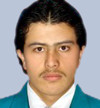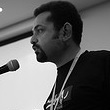Stories about Feature from July, 2008
Brazil: On authoriterrorism and online surveillance
Over 60 bloggers attended the blog carnival against censorship [pt] this Saturday, most of them posting especially about the new cyber crimes proposal for Brazil. The bill has now proceeded to the House of Representatives, where a request for it to be handled urgently was put forward last week, leaving bloggers on red alert. Over 70,000 signed an online petition against it.
China: Bloggers take stand against web activist's arrest
Following his apprehension last month as he was pitching in with the earthquake relief in his native Sichuan province, web activist Huang Qi was this weekend formally arrested for “illegal possession of state secrets”. Volunteers at his well-known website 64Tianwang.com (English) have been actively posting all news coverage and details...
Brazil: Bloggers question the 13 new cyber-crimes
In the small hours of last Thursday, July 10, the Brazilian Senate passed the ‘Digital Crimes Bill’, which typifies the cyber-crimes punishable by law and stipulates penalties accordingly. The proposal will now be proceeding to the House of Representatives for a review of the last amendments, and the next step...
NGOs: Defending the voices
At the end of our first day of open work, GV founder Rebecca MacKinnon put an important idea on the table: censorship is not only a political or technological problem; it is also a social problem. Thus, it is important to encourage bloggers to resist; to keep blogging. In this last task, the NGOs are one of the most valuable resources for bloggers who need help to keep blogging actively for their causes. The main question for the session was how NGOs can help more effectively.
Russia: One Year in Prison for Blog Comment
On July 7, Savva Terentyev, 22, a Russian blogger and musician, received a one-year suspended jail sentence for a comment he posted on Feb. 15, 2007, on the blog of a local journalist Boris Suranov. Below are rough translations of the comment and a small passage from the verdict, as well as an opinion poll on the impact of Terentyev's case on the freedom of expression in the Russian blogosphere.
Belarus: The Blast, the Arrests, and Bloggers’ Solidarity
A week ago, a homemade bomb packed with bolts and screws tore through a crowd of thousands of people who had gathered for the Independence Day all-night concert near the World War II monument in central Minsk. The blast occurred around 12:30 a.m on July 4; some 54 people were wounded; Belarusian president Aleksandr Lukashenko happened to be nearby when the bomb went off, but was not hurt.
Guide: A DigiActive Introduction to Facebook Activism
The guide provides an overview some best practices with Facebook activism along with information about what and what not to expect. The end of the piece provides a closer look into three successful Facebook-driven campaigns from Egypt, Burma, and Morocco.
Activists Meet the Academy: GVO Summit Day 1, Session 4
Participants of the fourth session of Global Voices first day of its Summit 2008, discussed the tools to help create better internet access while maintaining anonymity. The session, which carried the title “Front Line Activists meet the Academy: Tools and Knowledge,” provided hands-on information for internet users from repressive states and those with freer governments.
No Movement on Death Sentence for Afghan Internet User
Journalism student Sayed Parwez Kambakhsh, accused of supposedly copyng text from an Iranian website criticizing Islam's stance on the treatment of women and sentenced to death for heresy, was berated by his own judge at his most recent appeals hearing, according to Jean MacKenzie at IWPR.
Portugal: First blog ever to be blocked
June saw for the first time ever a blog suspended in Portugal because of a local court decision. The now defunct Póvoa Online blog had been taken to court by Póvoa do Varzim’s council president, Macedo Vieira, and his deputy, Aires Pereira, who claimed the bloggers had been using the blog merely to defame them. The court concluded that most of the blog’s content were opinionated articles, and that its authors criticized Macedo Vieira and Aires Pereira not only as the council’s president and vice-president, but also as “citizens, fathers, family members and friends”.
China: Facebook blocked? Not quite!
Just as pictures from Hong Kong's annual march for democracy began appearing on Facebook, a segment of the users of the social networking site in mainland China began blogging their troubles accessing the site altogether, seemingly fulfilling predictions made when news that a localized Chinese version of Facebook was in...
Iran: Death Penalty for Blogging?
On Wednesday, Iranian members of parliament voted to discuss a draft bill that seeks to “toughen punishment for disturbing mental security in society.” The text of the bill would add, “establishing websites and weblogs promoting corruption, prostitution and apostasy,” to the list of crimes punishable by death. In recent years,...
Towards a total human rights outlook
How can NGOs seeking to advance freedom of expression most effectively work with on-the-ground free speech activists to combat censorship? As a journalist, author and blogger living in Sydney, Australia, the opportunity to be involved in this Global Voices event is a privilege. I thank the organisers for the opportunity.
Citizen Media and Online Free Speech
While the first session of the 2008 Global Voices Summit focused on how internet censorship works in Belarus, Japan, Egypt, and Pakistan, and how activists have responded to those limitations, the second session was specifically focused on how censorship affects bloggers and citizen media.
A global anti-censorship network: GV08 Summit Day One, Session One
Also making opening remarks on Day One was Sami Ben Ghabia, Adcovacy Director for Global Voices. Sami is originally from Tunisia, but is now living in the Netherlands. Sami described how the Advocacy Project for Global Voices has been following how citizens are using digital media for social activism.















